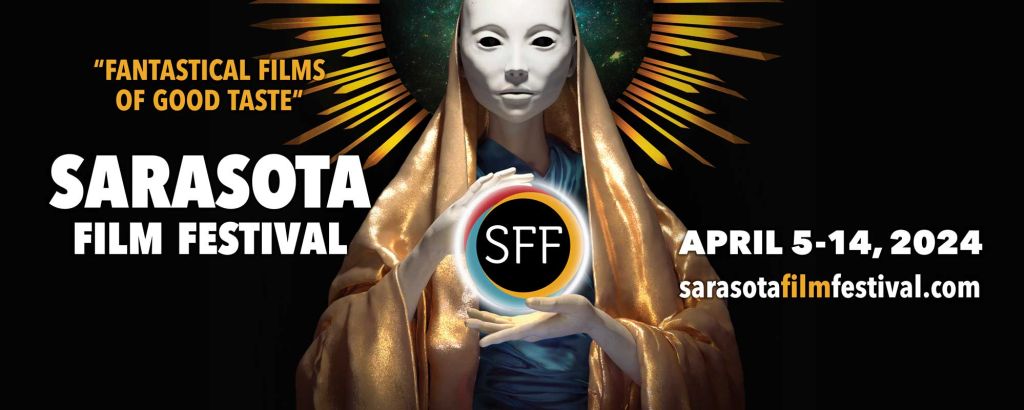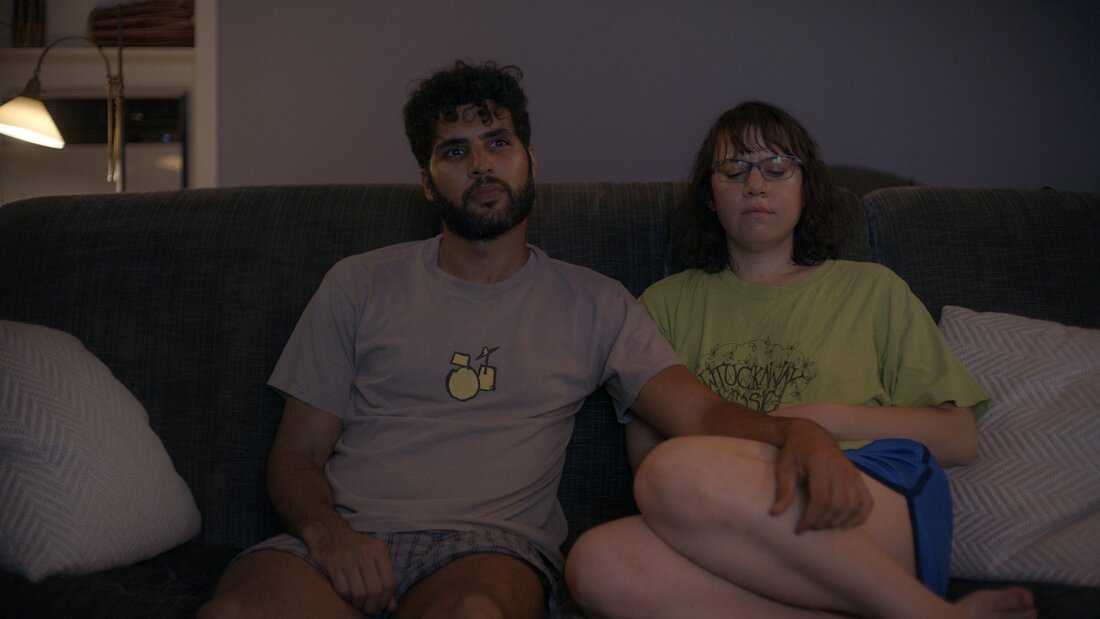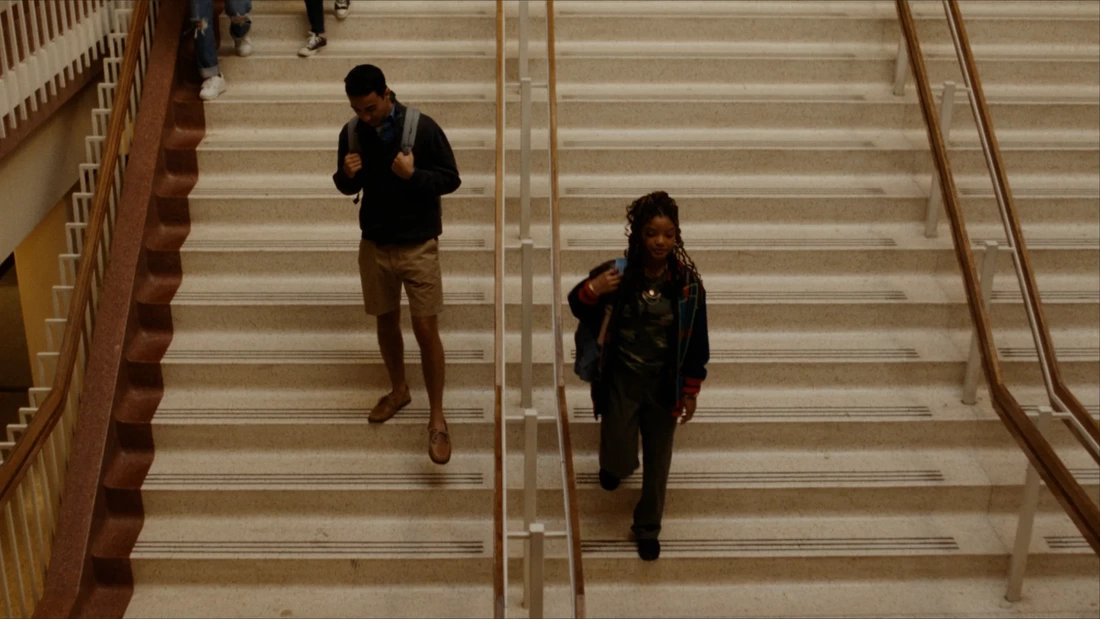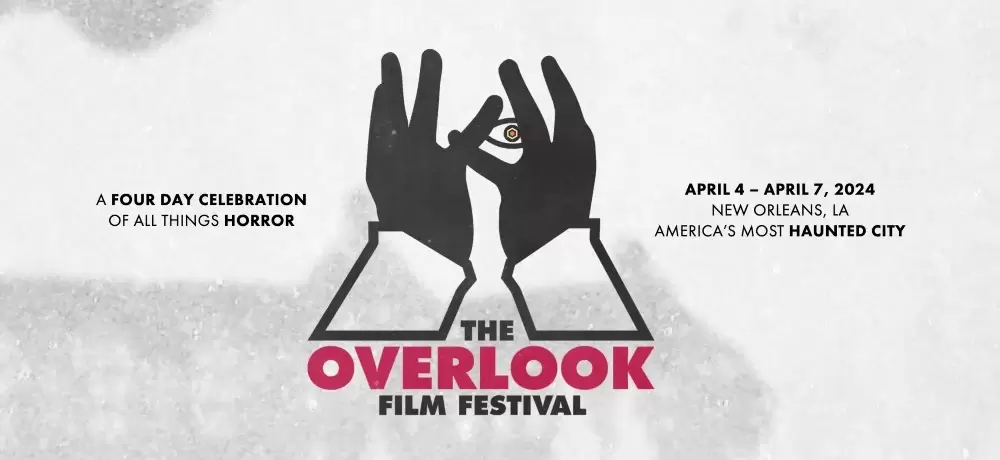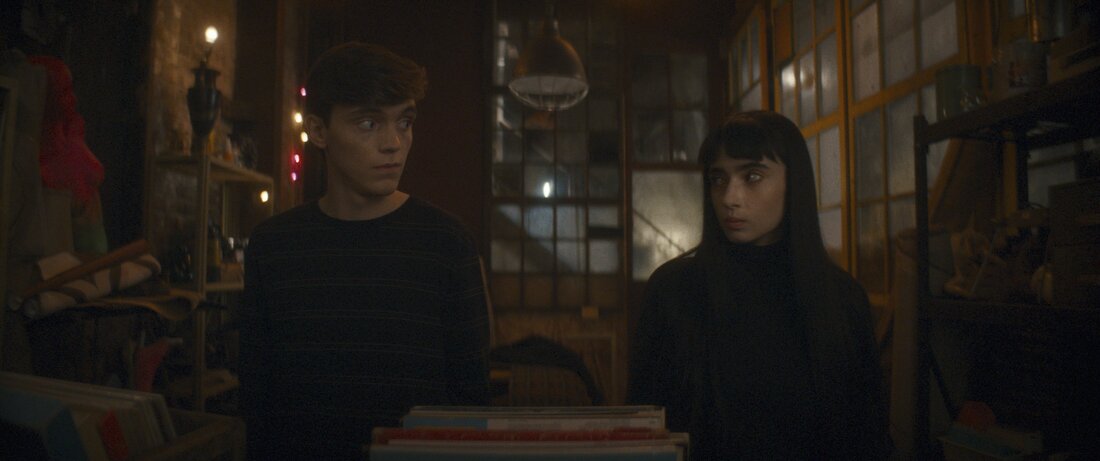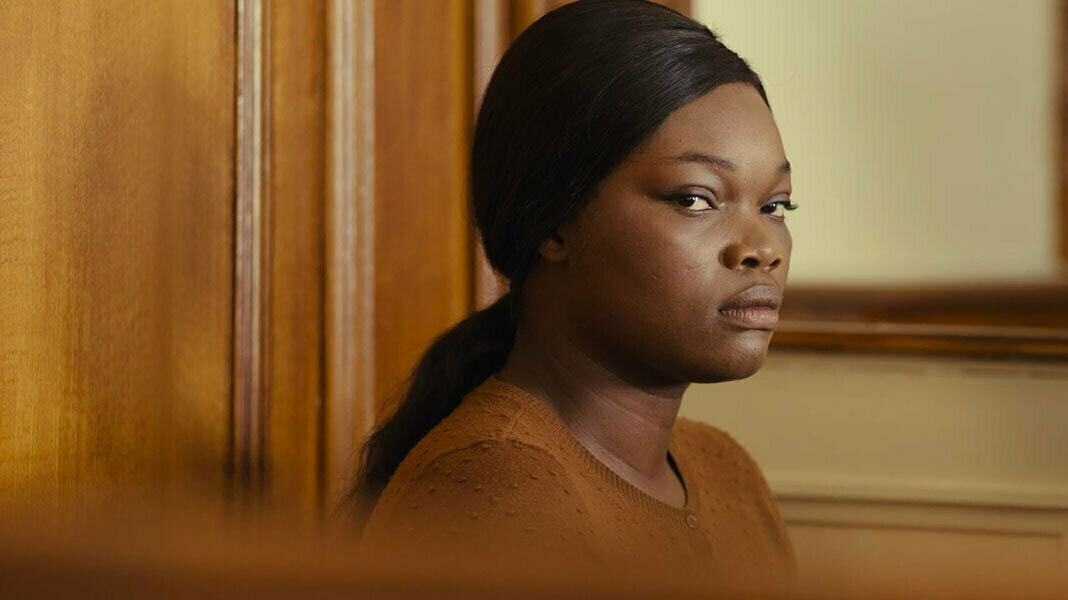|
By Sean Boelman
At what point does a political film become propaganda? And is there merit to be found in propaganda despite its purpose? The Soviet production I Am Cuba eludes easy classification in these regards. It boasts an incredibly nuanced look at the politics of the country in which it is set, all shot through the lens of some of the best cinematography of all time.
I Am Cuba is an anthology film set during the early days of the Cuban Revolution. It tells four stories of the average Cuban citizen. What stands out about this movie compared to others with an anthology structure is that all of its segments are very consistent in quality. From melodrama to shocking and guttural war stories, one thing unites each of the vignettes of I Am Cuba: their politicism. Understandably, this is a lot of the reason why I Am Cuba went under the radar for so long. The film was released during a time when the United States had an embargo against Cuba and was amidst the Cold War with the Soviet Union. It wasn’t particularly well regarded among its contemporaries in the Eastern Bloc either. Only decades later would it be recognized for the incredible work of political image-making that it is. And the images created by director Mikhail Kalatozov and cinematographer Sergey Urusevsky are pretty undeniable. I Am Cuba is well-known for its incredible use of long takes, of which there are several. However, these sequences don’t feel like mere gimmicks, effectively immersing viewers in the facade-like world of Cuba.
Although the movie has been available in several formats in the decades since its rediscovery, the main reason for picking up the Criterion Collection edition of the film is its stunning 4K restoration. The black-and-white cinematography looks as gorgeous as one could hope, and the uncompressed soundtrack is a treat to hear — especially regarding a movie whose soundtrack has been tinkered with as much as this one.
However, it’s not just the film's technical prowess that has earned it a cinematic reevaluation — I Am Cuba has, in recent years, grown in stature for its incendiary themes. Its heavy anti-imperialist, anti-capitalist themes are virtually as controversial today as they were decades ago, but that doesn’t make them any less timely or their perspective any less valuable. As far as bonus features go, this release of I Am Cuba doesn’t offer much that’s “new” — only a new “appreciation” of the movie by cinematographer Bradford Young (Oscar nominee for Arrival). However, it does boast a solidly eclectic bunch of archival materials, including the feature-length documentary “I Am Cuba,” the Siberian Mammoth, and a 2003 interview with Martin Scorsese, who played a large part in the film’s preservation. I Am Cuba is a wonderful movie, but if you’re a cinephile who’s paid attention to the repertory sphere in the past couple of decades, you didn’t need to be told that. Still, it’s absolutely worth picking up the Criterion Collection edition of this masterful once-lost political film, if only to see the pristine restoration of its seminal cinematography. The Criterion Collection edition of I Am Cuba is available beginning April 23.
0 Comments
By Sean Boelman
The Sarasota Film Festival is an incredible showcase for film for those on the west coast of the Sunshine State. From world premieres of local productions to screenings of some of the hottest films on the festival circuit, the Sarasota Film Festival is the place to be for cinephiles in the area.
We at disappointment media are excited to be covering this year’s Sarasota Film Festival, and if you’ll be joining us in the Circus City, here are a few movies you won’t want to miss: The Feeling That the Time for Doing Something Has Passed
Joanna Arnow’s The Feeling That the Time for Doing Something Has Passed is one of the most uncomfortable awkward comedies of the year. However, it’s also incredibly funny and poignant in its approach to topics like sexuality and age. When you see a deadpan comedy, you generally expect it to be somewhat cold and distant, but this is unexpectedly warm, offering a refreshing approach to this concept.
Green Border
The latest film from Polish auteur Agnieszka Holland, Green Border, made a splash upon its festival debut last Fall. The film tells the story of a group of refugees who are caught in the crosshairs of a geopolitical crisis as they attempt to find safety and a new home in the European Union. It’s an incredibly grueling watch, but fittingly so considering the urgency of the refugee crisis Holland is commenting on.
The Line
The Line star Austin Abrams, who was raised in Sarasota, will be receiving the Rising Star award at the festival. His latest film is a dark thriller exploring the toxicity of university culture. Abrams is just one of many incredible performers in a cast full of some of the most exciting new talents working in film today, including Alex Wolff, Halle Bailey, Lewis Pullman, and the late Angus Cloud. It’s an incredibly nauseating film, but a frank depiction of this culture is what is needed to call attention to how harmful it can be.
Soundtrack to a Coup d'Etat
Those looking for a documentary at this year’s festival likely won’t be able to find one better than Johan Grimonprez’s Soundtrack to a Coup d’Etat, which debuted at Sundance earlier this year. The documentary, exploring the intersection of music and politics during the Cold War, is very dense but absolutely gripping in how it tells this stranger-than-fiction story. Although many viewers will likely be drawn to this because of its inclusion of several high-profile musicians, they’ll walk away more intrigued by the film’s espionage-like aspects.
Thelma
Hot off its Sundance debut and acquisition, Thelma is making a stop at the Sarasota Film Festival before its summer release, and it’s one of the most delightful films you’ll see in the lineup. The film stars the Oscar-nominated character actress June Squibb (Nebraska) as an elderly woman who is scammed by someone impersonating her grandson over the phone, setting her off on a quest for revenge. It’s a lighthearted, fun action-comedy with a great performance by Squibb, and you won’t want to miss this one before it comes out.
The 2024 Sarasota Film Festival runs April 5-14 in Sarasota, FL.
By Sean Boelman
The Overlook Film Festival is one of the biggest events for horror cinephiles in the United States. While this year’s lineup only features one world premiere (Radio Silence’s Abigail), it also features several of the best genre films from other festivals, such as SXSW, Sundance, TIFF, and more.
If you’re descending on the Big Easy to check out some spooky flicks, here are a few we suggest you don’t miss: Cuckoo
This year’s opening night film, Tillman Singer’s Cuckoo, was met with a mixed reception upon its debut at Berlinale, but the Overlook crowd seems like a much better fit for the absurd, campy B-movie this is. If you want to try to make sense of the storyline, this probably isn’t the movie for you. However, if you’re willing to let go of logic and enjoy the film’s incredible sound design, strong production design, and ridiculously fun performances by Dan Stevens and Hunter Schaefer, you’re in the target audience for this picture.
Dead Mail
Dead Mail is likely one of the strangest films playing on the festival circuit right now, but that makes it perfect for an Overlook appearance. The best way to describe this thriller is like if Peter Strickland directed Silence of the Lambs. It follows the intertwined stories of a keyboard technician and the dead mail investigator following the path of his kidnapping. It’s darkly funny but consistently unsettling — making for an unquestionably auspicious debut for Joe DeBoer and Kyle McConaghy.
Humanist Vampire Seeking Consenting Suicidal Person
Humanist Vampire Seeking Consenting Suicidal Person debuted on the festival circuit last fall, and it’s a travesty that it still does not have US distribution. The deadpan horror-comedy is just as wacky as it sounds, following a vampire who struggles to drink blood because of the ethical concerns it gives her after she finds a depressed young man. An unorthodox romance brews, resulting in a hilarious and super poignant watch.
In a Violent Nature
If one indie horror movie has taken the festival circuit by storm, it’s Chris Nash’s In a Violent Nature. The film’s set-up is pretty simple: a Friday the 13th-esque slasher told from the perspective of the killer rather than the victims. Of course, the story is pretty straightforward, and the characters thin, but given the concept, it’s almost fitting. However, where the film shines is delivering some of the most incredible kills you will see in any horror film this year and maybe even this decade.
Sleep
The Korean thriller Sleep is directed by Bong Joon-ho’s (Parasite) Okja assistant director, Jason Yu. With that information, cinephiles know they’re in for a treat. Although the film starts in a somewhat restrained way, following a couple whose lives are thrown into disarray when one of them begins to suffer strange bouts of sleepwalking, the final act is incredibly memorable. It’s slowly been picking up buzz and a fanbase on the festival circuit, and the Fantasia crowd would be the perfect people to see it with.
The 2024 Overlook Film Festival runs April 4-7 in New Orleans, LA.
Review by Sean Boelman
Recently, Criterion has been partnering with indie distributor extraordinaire NEON to release some of its films through the boutique label. The latest is Saint Omer, a criminally underseen courtroom drama that served as documentarian Alice Diop's narrative feature debut. This release is a welcome opportunity for fans to get their hands on a copy of the best movie of 2022.
Saint Omer follows a novelist who attends the trial of a woman accused of murdering her infant daughter, causing her to reflect on her own life and how the case resonates with her. Submitted by France for the Oscar for Best International Feature but unfortunately snubbed, Saint Omer holds up incredibly well. Diop’s film stands out from most other courtroom dramas because of its documentary-like approach, which makes sense considering her background in nonfiction filmmaking. It is not the type of court movie with quick dialogue and chess-like legal tactics; Diop is much more interested in the intricacies of the story and their even deeper implications and contexts. The result is a movie that feels incredibly emotional, even by the genre's standards. Of course, there was no doubt that a movie about a mother accused of these crimes wouldn’t be a stirring watch, but the perspective through which Diop presents it makes the emotional elements all the more complex and impactful.
Diop also has some worthy and talented collaborators in actresses Guslagie Malanda and Kayije Kagame. Saint Omer rightfully served as a breakout for Malanda, whose tremendous performance as the woman on trial is as crushing as they come (she would later appear in The Beast alongside Lea Seydoux and George McKay). Yet, although Malanda’s performance is the more immediately forward, Kagame’s stands out on rewatch as especially potent in its quietness and mannerisms.
However, what stands out most about Saint Omer, upon revisiting it over a year later, is how tender it is with its themes. Although the story might seem somewhat straightforward on its surface, there are incredibly prescient undercurrents running through it, exploring themes like immigration, femininity, and misogyny. The script, written by Diop along with Amrita David and Marie N’Diaye, sticks with you in ways you would not expect. In terms of bonus features, this edition of Saint Omer features some new interviews with director Alice Diop, making it a relatively bare release compared to most of the newer movies that enter the Criterion Collection. The 2K restoration is solid, but it is important to note that this is not being released in 4K — only Blu-Ray and DVD. Ultimately, the Criterion of Saint Omer is worth picking up, if only to get the opportunity to own this incredible work of French cinema. Unlike most of NEON’s films in the collection, Saint Omer had previously not received a physical media release in the US — only streaming and digital media — and any francophile or cinephile who admires world cinema will undoubtedly want to have this on their shelf. The Criterion Collection edition of Saint Omer is now available.
By Sean Boelman
The Oscars are upon us, and speculation is running rampant as to what will take home the gold. This year, more so than usual, it feels like a majority of the awards have an obvious winner — most of them Christopher Nolan’s Oppenheimer.
Here is what we think will win each award, along with a breakdown of our reasoning: Best Picture
This year might be the most predictable Best Picture race in Oscar history. The winner is Oppenheimer. It’s not even worth entertaining an upset at this point. Christopher Nolan’s biopic has been the clear favorite in all of the precursors and is on its way to absolutely dominating on Oscar night, including taking home the top prize.
Will Win: Oppenheimer Can Win: it’s unstoppable Should Win: Maestro Best Director
Best Director and Best Picture often (but not always) go together, so it should be no surprise that the Best Director race is just as clear-cut as the Best Picture race. Christopher Nolan will finally get his long-overdue statuette for his second director nomination.
Will Win: Christopher Nolan, Oppenheimer Can Win: it’s unstoppable Should Win: Yorgos Lanthimos, Poor Things Best Actress
Best Actress is shaping to be one of the more exciting races this Oscar season. Heading into the fall, it seemed like Lily Gladstone’s performance in Killers of the Flower Moon was the clear favorite, but Emma Stone has been gaining a lot of steam for her turn in Poor Things.
Many pundits have compared this race to the 2019 race, where the early frontrunner, Glenn Close, was defeated by late-breaking darling Olivia Colman (who earned many of the same precursors as Stone and, interestingly, was also the lead in a Lanthimos film). Will Win: Emma Stone, Poor Things Can Win: Lily Gladstone, Killers of the Flower Moon Should Win: Sandra Hüller, Anatomy of a Fall Best Supporting Actor
We’re starting to sound like a broken record, but Oppenheimer also has Best Supporting Actor on lock. Robert Downey Jr. will take home his first Oscar for his performance as Lewis Strauss.
Will Win: Robert Downey Jr., Oppenheimer Can Win: it’s unstoppable Should Win: Ryan Gosling, Barbie Best Supporting Actress
Finally, a lock that won’t go to Oppenheimer! Da’Vine Joy Randolph has taken home virtually every precursor award for her performance in The Holdovers. And who can blame awards voters? It was an incredible performance. This will maybe be one of the most deserved wins of the night.
Will Win: Da’Vine Joy Randolph, The Holdovers Can Win: she’s got this in the bag Should Win: Da’Vine Joy Randolph, The Holdovers Original Screenplay
The screenplay categories are shaping up to be unexpectedly contentious. The current frontrunner for Original Screenplay is probably the script for The Holdovers, a film quite well-received by awards voters — particularly older ones.
However, there is also a strong case to be made for Anatomy of a Fall. The French courtroom drama overperformed with nominations, and it has (as a pleasant surprise) won several precursors. It could easily upset in this category. Will Win: The Holdovers Can Win: Anatomy of a Fall Should Win: May December Adapted Screenplay
The Adapted Screenplay category is almost as contentious as the Original category, although this one has a more clear frontrunner. American Fiction has picked up a majority of the precursor awards in this category, so we’re currently forecasting that it will win. However, there’s also a lot of support in this category for Barbie and Oppenheimer. It’s American Fiction’s to lose — but it could lose it.
Will Win: American Fiction Can Win: Oppenheimer Should Win: Barbie International Feature
The International Feature category probably would have been much more enjoyable had France submitted the Best Picture-nominated Anatomy of a Fall instead of The Taste of Things, but as it stands, The Zone of Interest is the only film in this category that is also nominated for Best Picture. Don’t expect an upset.
Will Win: The Zone of Interest Can Win: it’s a lock Should Win: The Teachers’ Lounge Documentary Feature
Documentary Feature is another race that seems pretty locked down, with the Ukrainian documentary 20 Days in Mariupol seeming like the apparent winner. However, it might not be surprising if the Academy goes with the more crowd-pleasing Bobi Wine: The People’s President. To Kill a Tiger has also picked up some significant steam recently, but it feels like too late of a breaker to take home the prize.
Will Win: 20 Days in Mariupol Can Win: Bobi Wine: The People’s President Should Win: 20 Days in Mariupol Animated Feature
For a minute, The Boy and the Heron was picking up a few awards, and it seemed like it could be a legitimate competitor to Spider-Man: Across the Spider-Verse. However, Spider-Verse currently holds all of the key precursors. Expect the franchise to go two-for-two in this category.
Will Win: Spider-Man: Across the Spider-Verse Can Win: The Boy and the Heron Should Win: Robot Dreams Cinematography
We’re back to Oppenheimer wins! Hoyte van Hoytema has a clear advantage to win for his work on Nolan’s film. If there is going to be an upset, it would be Rodrigo Prieto for Killers of the Flower Moon, but Oppenheimer's dominance seems much more likely at this point.
Will Win: Oppenheimer Can Win: Killers of the Flower Moon Should Win: Oppenheimer Editing
This is another below-the-line category that Oppenheimer seems destined to win! Like Cinematography, Oppy’s biggest competition is Killers of the Flower Moon, but this is another one that will likely go to the bomb biopic.
Will Win: Oppenheimer Can Win: Killers of the Flower Moon Should Win: Oppenheimer Production Design
For Production Design, it seems like a two-way race between Barbie and Poor Things. It could go either way, but we’re leaning more toward the colorful world of Barbieland.
Will Win: Barbie Can Win: Poor Things Should Win: Barbie Costume Design
The Costume Design race also seems to be between Barbie and Poor Things. Again, we’re giving the edge to Barbie, but don’t be surprised if the period drama upsets. This branch does tend to award period pieces a lot.
Will Win: Barbie Can Win: Poor Things Should Win: Barbie Makeup and Hair Styling
Makeup and Hair Styling will likely go to Maestro for its prosthetics work. However, there is also a chance that it goes to Poor Things for its impressive hair styling work. It’s a slight chance, but a chance nevertheless.
Will Win: Maestro Can Win: Poor Things Should Win: Poor Things Visual Effects
Visual Effects is a race that could go any number of ways. Right now, we’re leaning towards the sci-fi film The Creator because it has the most “obvious” special effects. However, it could also feasibly go to Ridley Scott’s war movie Napoleon or the underdog — Godzilla Minus One. We’re rooting for the kaiju to upset here, but don’t think it will happen.
Will Win: The Creator Can Win: Napoleon Should Win: Godzilla Minus One Sound
Continuing its below-the-line dominance, Best Sound is another award that Oppenheimer seems likely to take home on Oscar night. There is a very good chance that the Academy rewards the exquisite work in either Maestro or The Zone of Interest, but we expect them to go with another Oppy win.
Will Win: Oppenheimer Can Win: Maestro Should Win: The Zone of Interest Score
Speaking of Oppenheimer, it’s also almost guaranteed to take home Best Score. If something is going to upset, it would be John Williams’s work on Indiana Jones and the Dial of Destiny — the only other film in the nominees that was also nominated at the Grammys — but it’s Ludwig Göransson’s to lose.
Will Win: Oppenheimer Can Win: Indiana Jones and the Dial of Destiny Should Win: Poor Things Original Song
Your Best Original Song winner is… Barbie! Which Barbie song is a different question. Industry awards have mostly been going to the Billie Eilish tune “What Was I Made For?” so that’s the favorite, but “I’m Just Ken” did take home a lot of critics’ awards, so it could upset.
Will Win: “What Was I Made For?,” Barbie Can Win: “I’m Just Ken,” Barbie Should Win: “I’m Just Ken,” Barbie Documentary Short
The Documentary Short category seems to be led right now by The ABCs of Book Banning, if only because it covers important subject matter. However, the presentation of the film is somewhat low-quality, so it could be the much better The Last Repair Shop.
Will Win: The ABCs of Book Banning Can Win: The Last Repair Shop Should Win: The Last Repair Shop Animated Short
The Animated Short race seems to be between Letter to a Pig and Ninety-Five Senses. Ninety-Five Senses is the better and more crowd-pleasing film, but Letter to a Pig feels more timely and complex. We’re going to give the edge to Letter to a Pig.
Will Win: Letter to a Pig Can Win: Ninety-Five Senses Should Win: Ninety-Five Senses Live-Action Short
The Live-Action Short category also seems to be down to two major contenders. The first is the abortion drama Red, White and Blue, which could take home the award for its relevant subject matter. However, this could also go to Wes Anderson’s The Wonderful Story of Henry Sugar, perhaps finally giving the beloved filmmaker his “overdue” Oscar.
Will Win: Red, White and Blue Can Win: The Wonderful Story of Henry Sugar Should Win: Invincible |
The Snake HoleRetrospectives, opinion pieces, awards commentary, personal essays, and any other type of article that isn't a traditional review or interview. Archives
April 2024
Categories
All
|
|
|
disappointment media
Dedicated to unique and diverse perspectives on cinema! |



